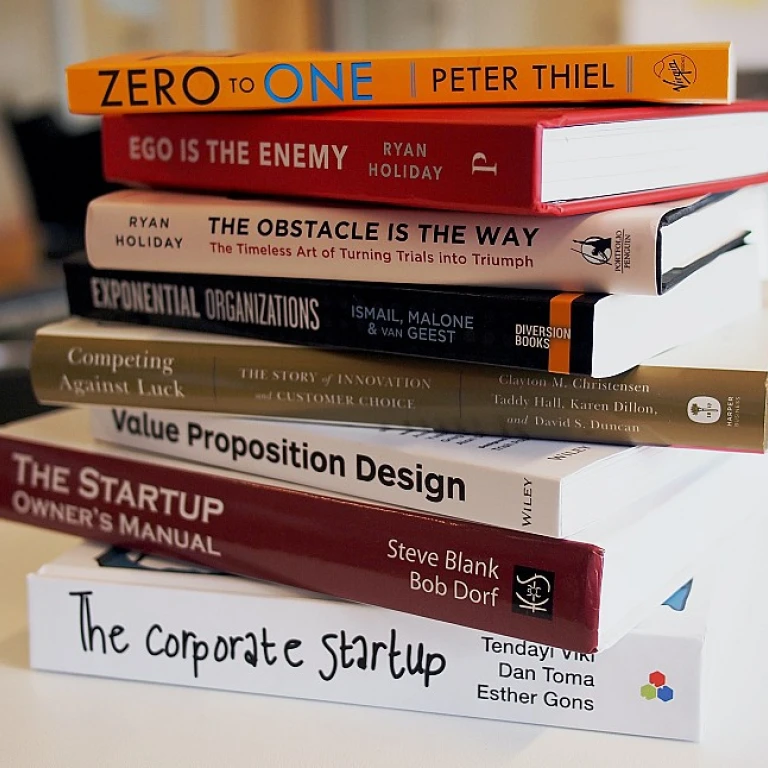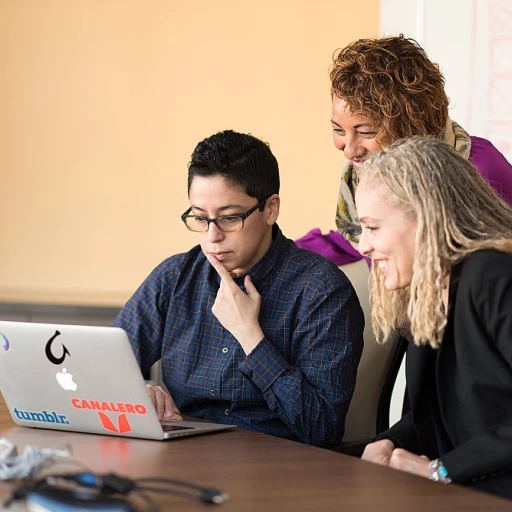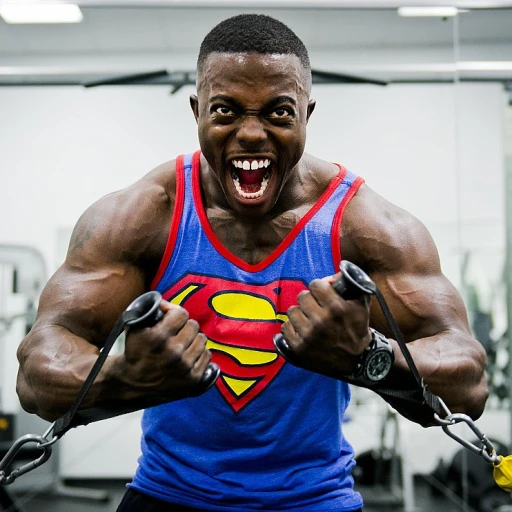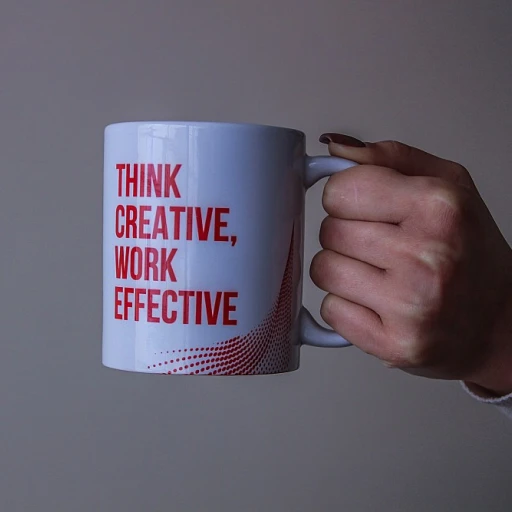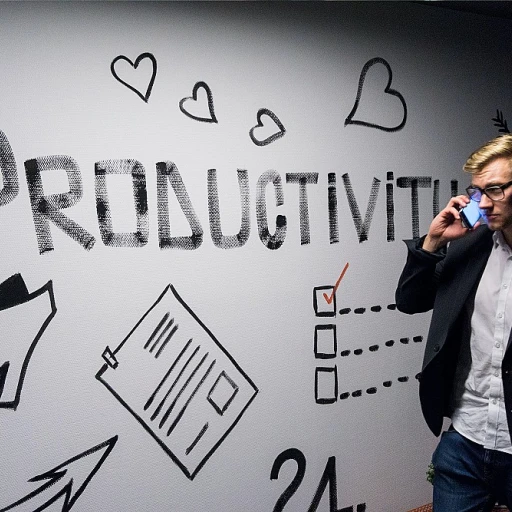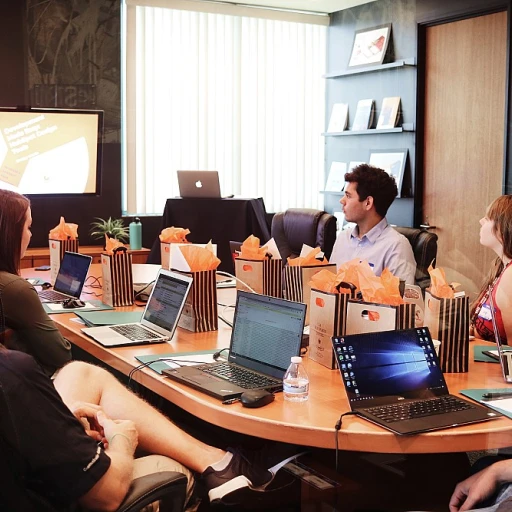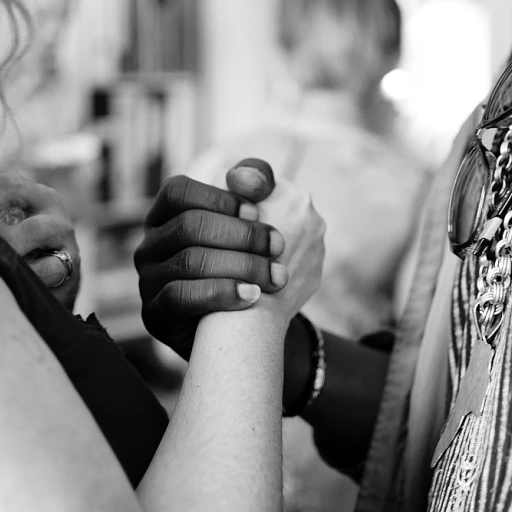Understanding the Role of Casual Interview Questions
Uncovering the Value of Casual Interview Inquiries
Informal interviews provide a unique platform to delve into a candidate's fit for a job role in a way that traditional interview questions cannot. Such an environment allows hiring managers to craft questions that serve the dual purpose of assessing technical skills and exploring communication skills and problem-solving abilities in a relaxed manner.
The primary goal of adapting such a conversational tone in interviews is rooted in understanding how a candidate might respond to various work scenarios, thereby revealing a glimpse into their suitability for a company's culture. This approach helps bridge the formal and informal aspects of interviews, offering insights into how candidates would collaborate with future team members in different work environments.
For instance, a candidate might be asked to describe a time when they had to address a complex customer service issue. This question allows the interviewer to gauge not only the candidate's problem-solving skills but also their ability to engage effectively with customers and team members—serving as a precursor to their potential success within the company.
Additionally, placing a focus on casual questions in interviews emphasizes the growing necessity for companies to align their hiring practices with current trends in employer branding. By fostering a balanced mix of professionalism and relaxation, such interviews contribute positively to the overall candidate experience and help reduce turnover. Incorporating these elements into informal interviews not only strengthens the hiring process but also enhances company reputation in competitive job markets.
For those looking to further understand how these strategies enhance employee engagement, you can explore more on how employee experience directly impacts employee engagement
here.
Crafting Questions That Reflect Company Culture
Aligning Interview Questions with Company Values
Crafting questions that resonate with your company's core values is a strategic approach that can significantly enhance the interview process. When considering how to build a list of interview questions, it's crucial to tailor them in a way that they not only elicit relevant information from candidates about their skills and experience but also provide insight into their alignment with the company's culture and values.
To ensure you're assessing candidates in this context, consider the nature of your company. For instance, if you're proud of a collaborative work environment, design questions that explore a candidate’s ability to work within a team. This could involve asking about a specific instance where they had to describe a time they effectively collaborated on a task. Similarly, if your company values problem-solving, questions should be geared towards understanding how candidates approach challenges. For example, you might ask, "Can you provide an example of a unique problem you solved at work?" Such questions can reveal candidates' thought processes and whether their problem-solving techniques align with your company’s approach.
Additionally, informal interviews can be an effective way to gauge compatibility. By incorporating less formal elements, such as casual conversations, into the interview process, you can allow candidates to share insights into their communication skills and adaptability. A question that might facilitate this could be, "What does your ideal role in a company look like?" or "How do you handle feedback from team members?" Such queries can lead to more authentic answers, helping you assess how a candidate might mesh with your existing team.
Ultimately, when crafting these questions, consider how they can impact the candidate's experience. A well-structured interview process, where questions feel both challenging and reflective of the organization’s ethos, can leave a positive impression on candidates, increasing their interest in the role. For more insights on how aligning questions with company values can elevate employee engagement, explore this article.
Examples of Effective Casual Interview Questions
Making Interviews More Naturally Interactive
Crafting questions that reflect company culture is more than an exercise in probing a candidate's qualifications—it's about understanding the social and informal dynamics at play in a potential work environment. Considering the right interview questions will help hiring teams gauge whether candidates will naturally align with the company's ethos, beyond their ability to perform the tasks specified in the job description.
Here are some examples of effective informal interviews questions that can bring the best interview outcomes:
- "Describe a time when you solved a complex problem with a creative solution." This question reveals not only a candidate's problem-solving skills but also their approach to facing challenges, reflecting a work environment that values innovation.
- "Which company value do you see yourself contributing the most towards and why?" Answers to this question interview candidates on their alignment with the managerial culture, pointing towards a potentially smooth integration into the internal culture. This creates a balanced perspective on why understanding the impact of culture scores on employer branding is critical.
- "Can you provide an example of good teamwork from your past experiences?" Here, the interview question dives into communication skills and the ability to collaborate effectively, which are crucial for maintaining harmony among team members.
- "What do you typically do when you need to relax after a hard work week?" This informal interview question will help uncover whether a candidate's recharge methods exhibit balance and align with the company’s views on work-life balance.
Incorporating such questions into job interviews widens the lens through which a candidate is evaluated. It not only directs the hiring process towards potential skill gaps and strengths but also aligns candidate interactions with the team ethos. By understanding how informal interviews contribute to the overall assessment, companies can better tailor their interviewing strategies for more authentic and reliable hiring outcomes.
Balancing Professionalism and Relaxation in Interviews
The Balance Between Professionalism and a Relaxed Interview Atmosphere
Crafting an interview environment that feels both professional and relaxed is an art that can significantly enhance the candidate experience. This balance not only helps in making candidates feel comfortable but also allows them to showcase their true potential in alignment with the company's values and goals.
When a candidate steps into an interview room, their first impression of the company often sets the tone for the entire interview process. By creating a calming, friendly, yet professional atmosphere, you enable candidates to focus more on the questions and less on their nerves. Such a work environment encourages open communication, assisting candidates in giving more genuine answers.
While conducting interviews, it’s essential to vary the types of questions asked. Combining job-specific and casual interview questions can considerably help hiring managers in gauging not only the problem-solving skills but also the interpersonal abilities of the candidates. For example, mixing questions that describe a time when candidates successfully managed a team with inquiries about how they unwind after work adds an informal flavor to the dialogue.
During informal interviews, pay attention to the cues from candidates, adjusting the flow of the conversation to keep it naturally iterative and relaxed. For instance, if a candidate showcases strong customer service skills through their professional answers, diving into more company culture-oriented discussions, such as their idea of a good team work environment, can be revealing.
The effectiveness of a balanced interview approach hinges on how well it represents the company culture. By aligning the questions with real-life scenarios reflective of the role, you build a framework that not only explores candidates' professional qualifications but also their ability to fit within the existing team dynamics. By prioritizing both professionalism and relaxation, the chances of attracting and retaining top talent increase.
Impact of Casual Questions on Candidate Experience
Enhancing Candidate Experience through Informal Discussions
The role of casual interview questions in creating a supportive and engaging atmosphere for candidates cannot be overstated. Informal interviews have become an integral part of modern hiring processes, offering a glimpse into a company's culture and work environment. To enhance candidate experience, companies must strike a balance between professionalism and a relaxed setting during interviews.
Casual questions serve as icebreakers, allowing candidates to feel more at ease, which in turn can lead to more honest and insightful answers. For example, asking a candidate to describe a time they successfully tackled a problem can reveal their problem-solving and communication skills, which are critical attributes for many roles. Additionally, these questions can offer a unique look into how a candidate might integrate into the team and adapt to the company culture.
Informal interview settings also provide candidates with the chance to showcase their personalities and genuine interest in the company more naturally. Questions like "What is your favorite way to collaborate with team members?" or "How do you typically unwind after a busy workday?" can reveal a candidate's work habits and preferences, offering valuable insights for hiring committees.
Ultimately, the strategic use of casual interview questions will help create a positive experience that leaves both the candidate and the hiring team with a deeper understanding of potential fit. While it's important to touch upon key skills and qualifications, including more relaxed discussions ensures a comprehensive evaluation of candidates, paving the way for a more effective and fulfilling recruitment process.
Adapting to Changing Trends in Employer Branding
Adapting Questions to Modern Employer Branding
In the rapidly evolving landscape of employer branding, it's essential to stay ahead of trends in interviews. One significant shift is the incorporation of more casual and informal interview questions. These are designed not only to understand a candidate's skills and experience but also to gauge how they might fit within the work environment and company culture.
As we strive to balance professionalism and relaxation in interviews, a good approach is to blend traditional interview questions with more relaxed, conversational ones. This method helps create an atmosphere that encourages candidates to be authentic and at ease, offering more genuine answers that reflect their true potential and fit.
It's also important to customize interview questions to mirror current workplace themes such as remote work flexibility or teams' emphasis on diversity and inclusion. By asking well-crafted questions relevant to these topics, you demonstrate that your company is responsive to trends that resonate with today's workforce.
Moreover, adjusting the balance of formal and casual questions based on the role and company culture can improve the hiring process. For example, casual questions can provide insights into a candidate’s problem-solving abilities or customer service mindset by inviting them to describe times they applied these skills in different scenarios. Such questions not only assess their responses but also allow you to evaluate their communication skills and job readiness.
Understanding the impact of these trends and integrating them effectively can lead to a better candidate experience. By aligning your interview approach with contemporary employer branding strategies, organizations can significantly enhance their hiring outcomes while ensuring a robust representation of their brand ethos.

